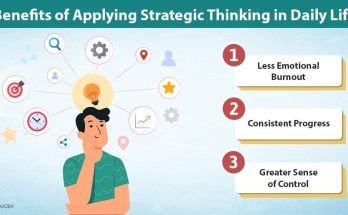In a business world saturated with polished pitches, curated personas, and algorithm-driven messaging, authenticity has become a rare and valuable currency. The power of being yourself—genuinely, consistently, and unapologetically—is often underestimated. Yet authenticity is what builds trust, fosters connection, and drives long-term success. It’s not about being perfect or universally appealing. It’s about being real. And in a landscape where consumers and colleagues alike are increasingly skeptical of surface-level charm, the ability to show up as your true self is not just refreshing—it’s transformative.
Authenticity begins with self-awareness. It requires a clear understanding of your values, your strengths, and your limitations. In business, this means knowing what you stand for and why it matters. When leaders and brands operate from a place of clarity, their decisions become more coherent and their messaging more compelling. People can sense when a company is aligned internally—when its culture, communication, and customer experience all reflect the same core principles. That alignment creates credibility. It signals that what’s being said is backed by what’s being done, and that consistency builds trust over time.
Being authentic also means embracing vulnerability. It’s easy to present a polished image, to highlight only the wins and gloss over the setbacks. But real connection comes from sharing the full story. When a founder talks openly about the challenges of building a business, or a team admits a mistake and explains how they’re learning from it, it humanizes the brand. It shows that behind the logo and the metrics are people who care, struggle, and grow. This kind of transparency doesn’t weaken a business—it strengthens it. It invites empathy, encourages dialogue, and creates space for genuine engagement.
In marketing, authenticity is especially powerful. Consumers are increasingly savvy. They can spot insincerity, inflated claims, and generic messaging from a mile away. Brands that communicate with honesty and personality stand out. They don’t try to be everything to everyone—they focus on being meaningful to the right people. This might mean using a conversational tone, sharing behind-the-scenes content, or highlighting real customer stories. It’s not about being casual—it’s about being clear and consistent in how you show up. When marketing reflects the true character of the brand, it resonates more deeply and drives more lasting impact.
Authenticity also plays a critical role in leadership. Leaders who are authentic inspire trust and loyalty. They don’t rely on authority alone—they lead through connection. This means being approachable, listening actively, and making decisions that reflect both strategic insight and personal integrity. Authentic leaders don’t pretend to have all the answers. They ask questions, admit when they’re wrong, and invite others to contribute. This openness creates a culture where people feel safe to be themselves, to take risks, and to grow. And that kind of culture is fertile ground for innovation, collaboration, and resilience.
In team dynamics, authenticity fosters stronger relationships. When colleagues feel free to express their ideas, concerns, and personalities, communication improves. Misunderstandings decrease, and mutual respect increases. Teams that value authenticity are more cohesive and more effective. They don’t waste energy on posturing or politics—they focus on solving problems and supporting each other. This doesn’t mean abandoning professionalism—it means integrating it with humanity. It’s about recognizing that people bring their whole selves to work, and that honoring that reality leads to better outcomes.
Even in customer service, authenticity makes a difference. A scripted response might resolve an issue, but a genuine conversation can turn a frustrated customer into a loyal one. When service representatives are empowered to speak honestly, empathize sincerely, and act with integrity, the experience becomes more than a transaction—it becomes a relationship. Customers remember how they were treated, not just what was said. And when that treatment reflects authenticity, it leaves a lasting impression.
Technology has added complexity to the authenticity equation. With automation, AI, and digital platforms shaping so much of the customer experience, it’s easy to lose the human touch. But technology can also enhance authenticity when used thoughtfully. Personalized messages, responsive design, and transparent data practices all contribute to a more genuine experience. The key is to use technology to support human connection, not replace it. When digital tools reflect the brand’s personality and values, they reinforce authenticity rather than dilute it.
Ultimately, the power of authenticity lies in its ability to create trust. Trust is the foundation of every meaningful business relationship—whether with customers, employees, partners, or investors. And trust is built not through perfection, but through consistency, transparency, and sincerity. Being yourself in business doesn’t mean ignoring strategy or abandoning professionalism. It means aligning your actions with your values, communicating with clarity, and showing up with integrity. In a world that often rewards conformity and polish, authenticity is a bold and impactful choice. It’s what turns a business from a brand into a beacon—something people believe in, connect with, and choose to support.




